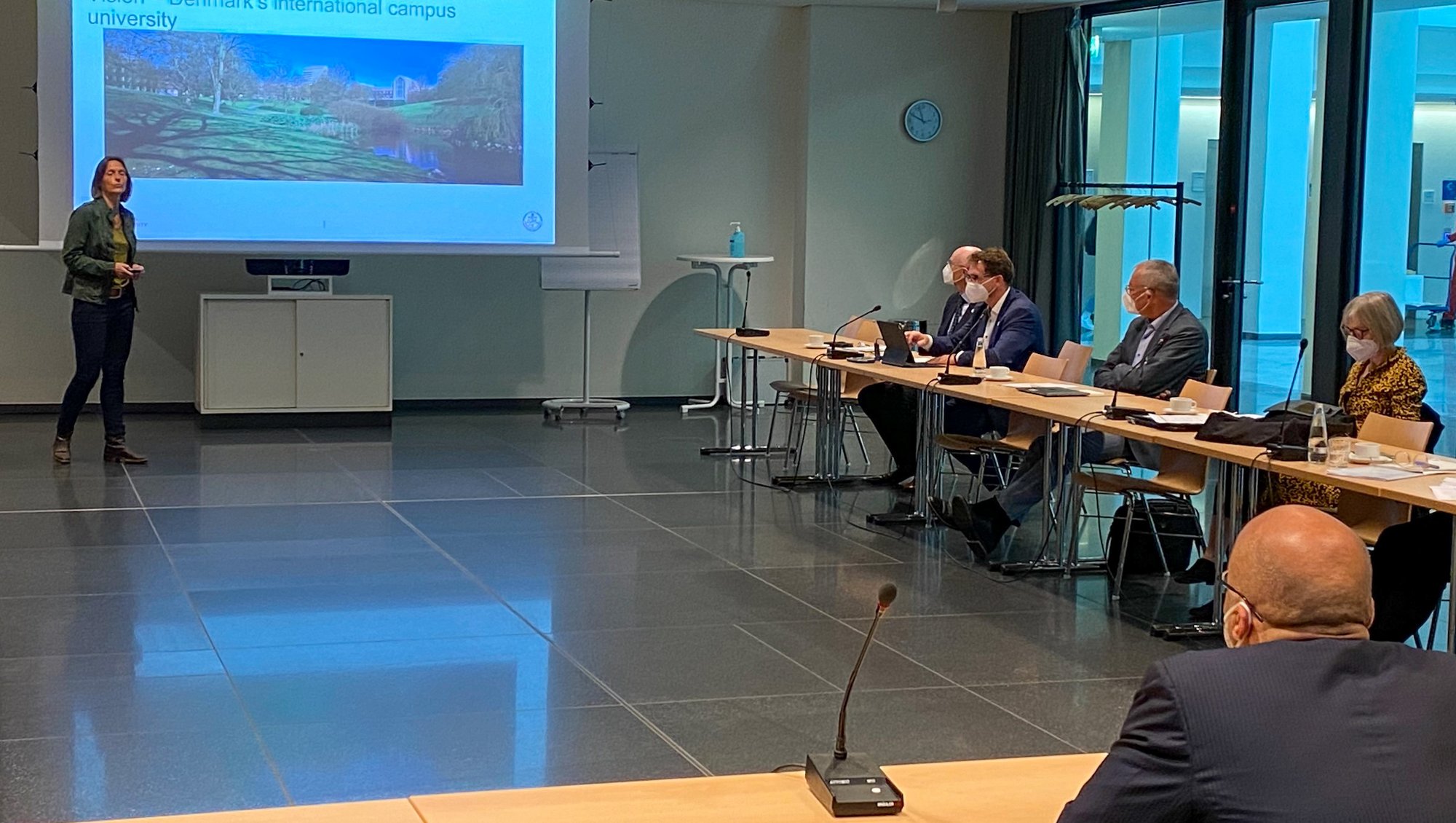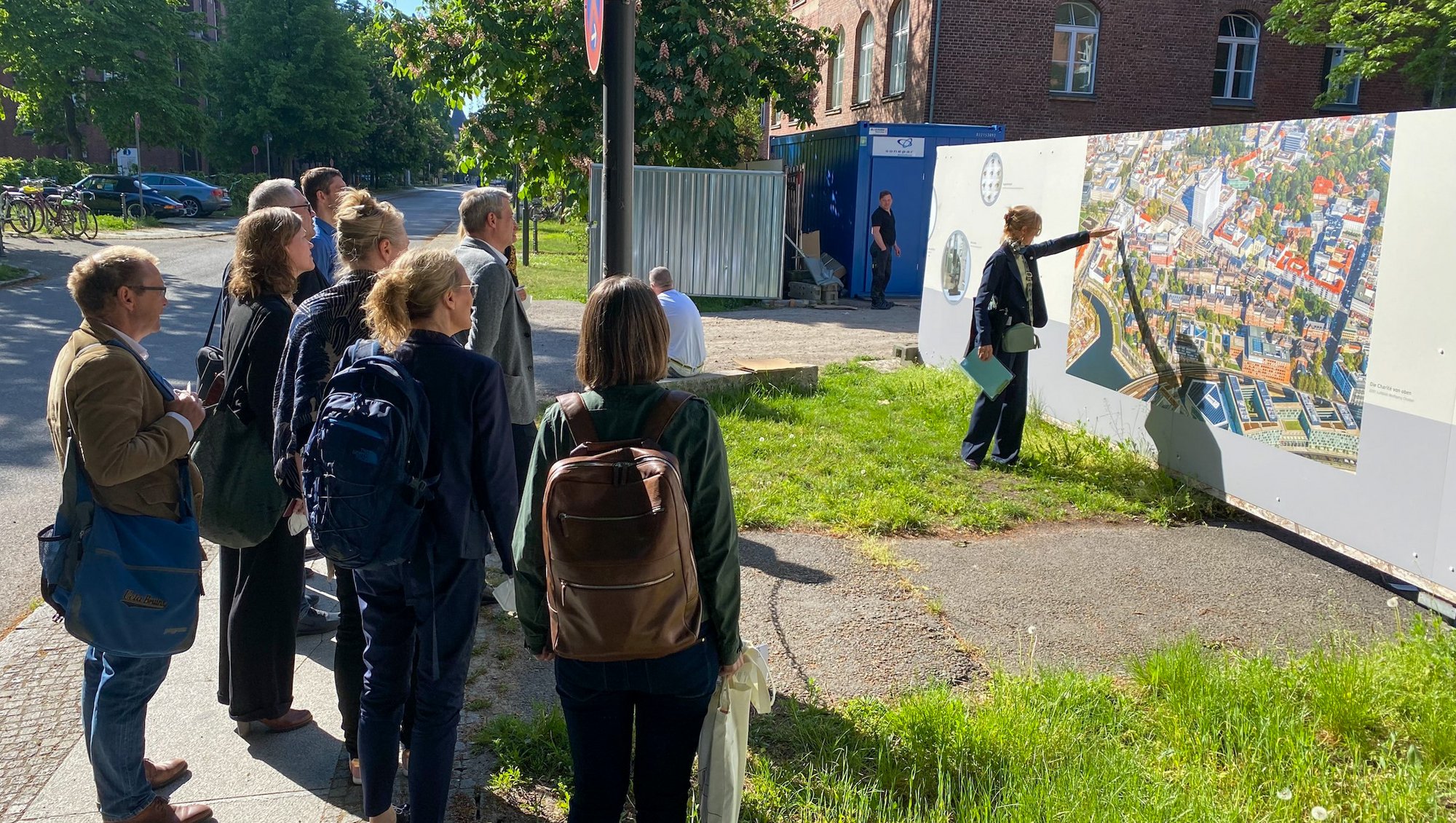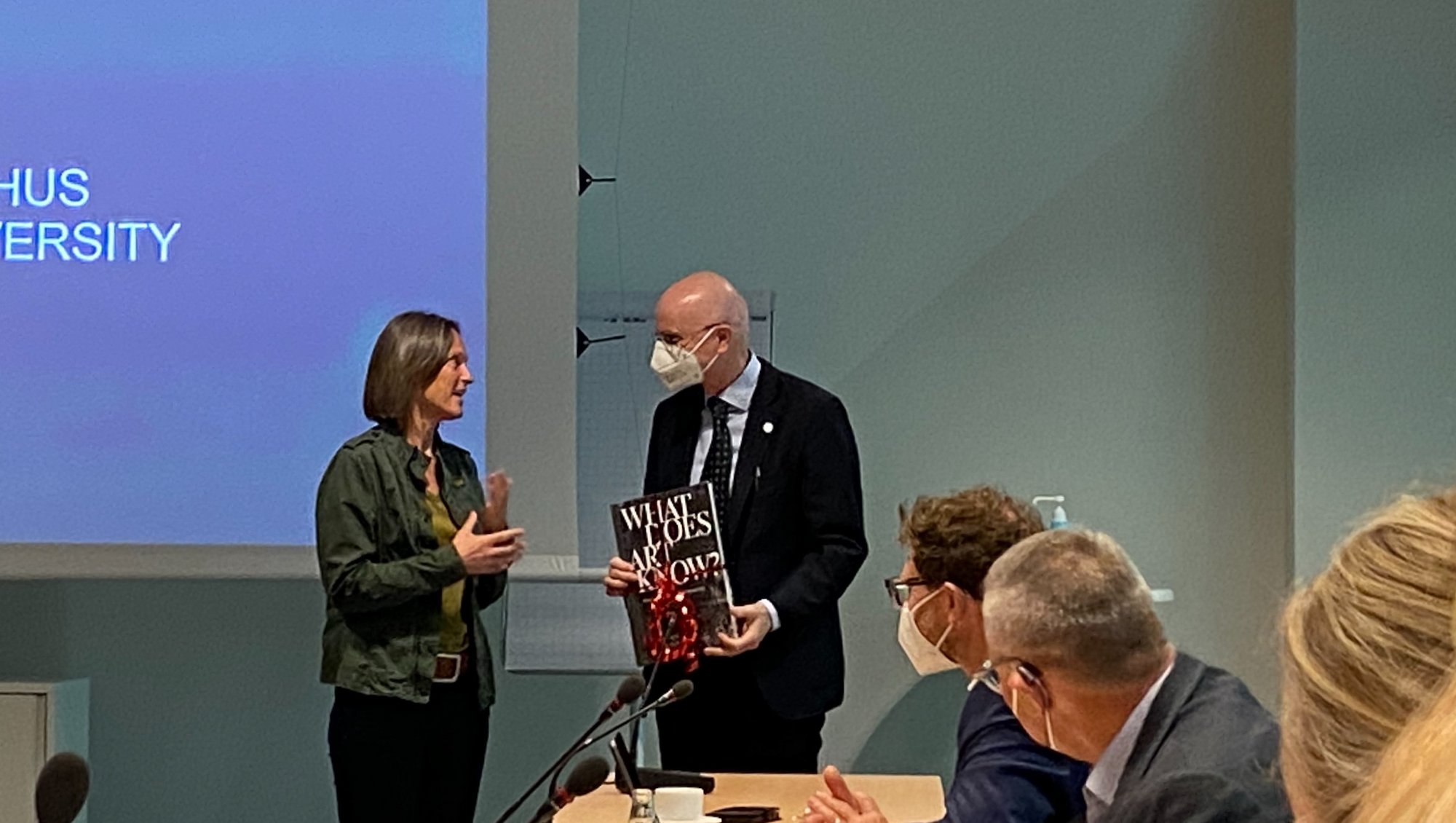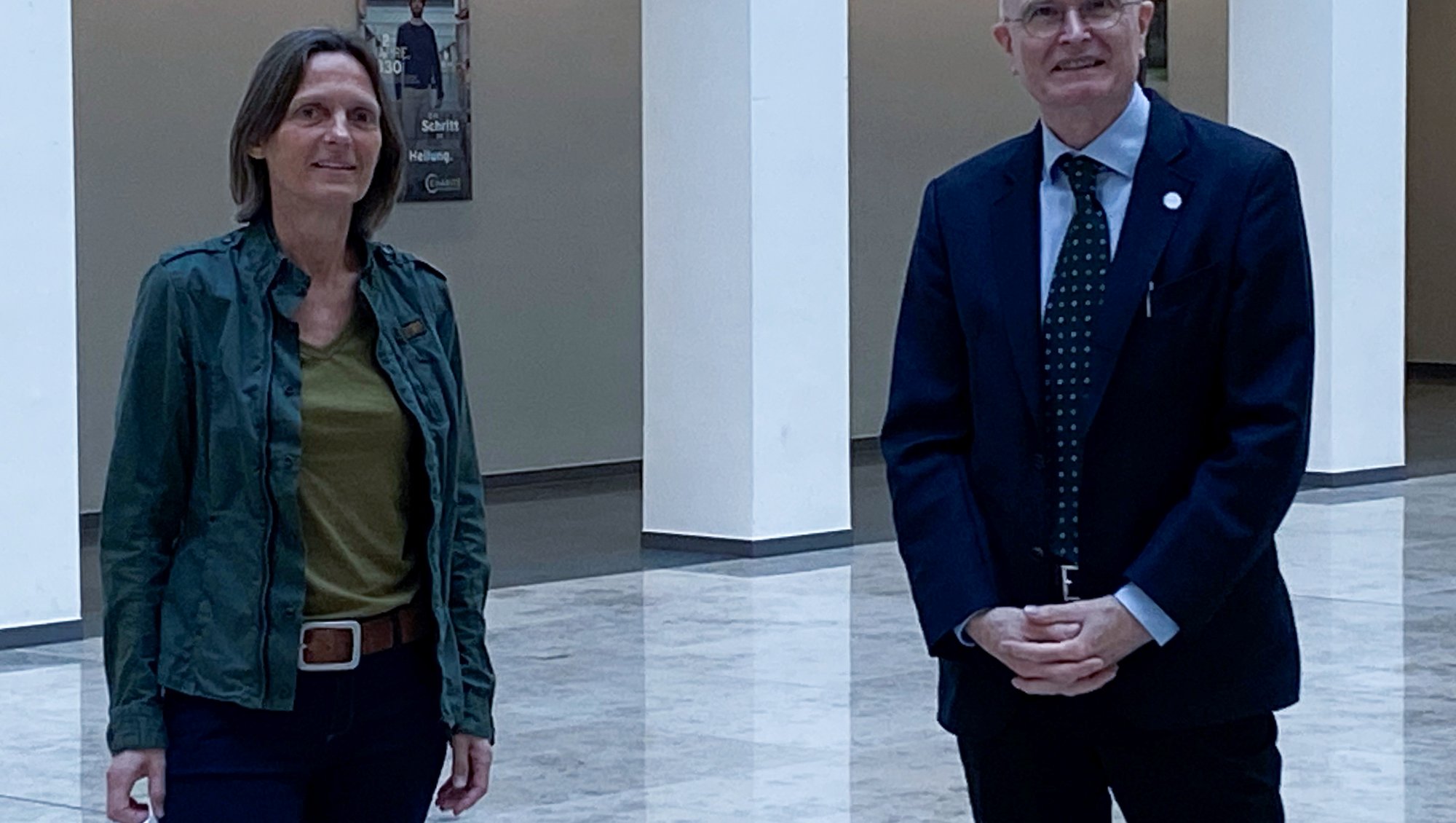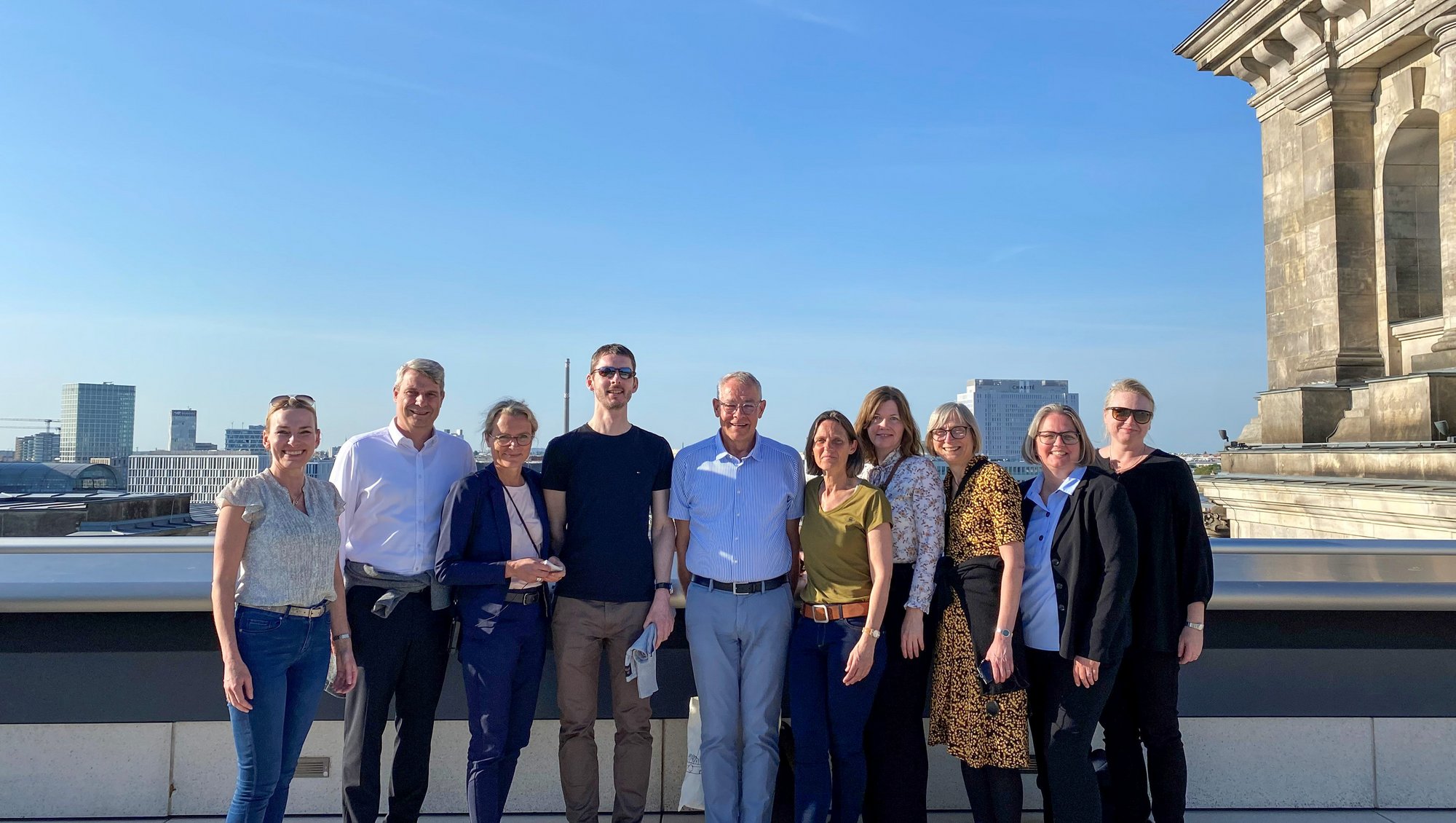Trip to Berlin has strengthened the Circle U. partnership
The faculty management team recently travelled to Berlin in a bus rented from the local football team AGF. The purpose was to visit the Circle U.-partners: Humboldt University and Charité university hospital. The faculty management team returned with a stronger Circle U. alliance and specific opportunities for collaboration within both research and education.
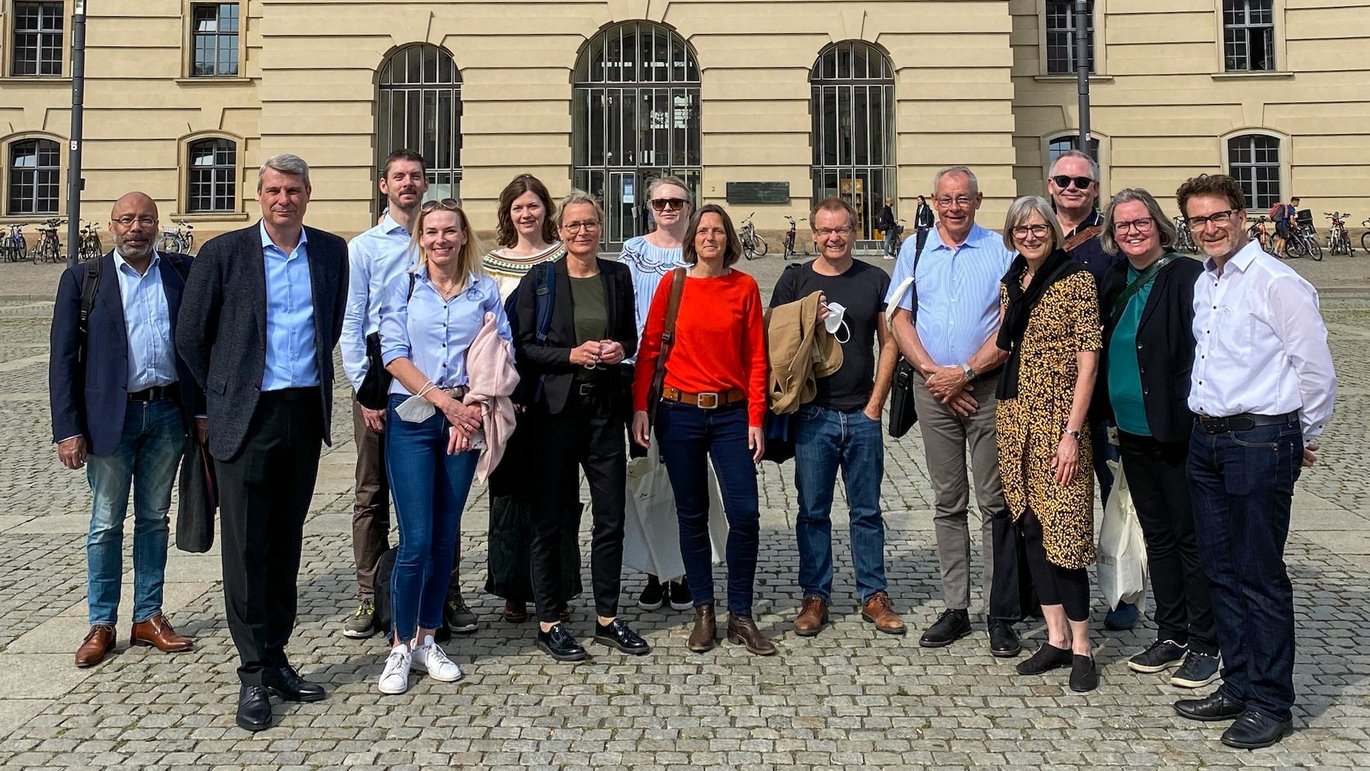
The mission: Empowering students and staff to mobilise knowledge for impact in order to make the world a better place. The vision: By 2025, Circle U. is an inclusive, research-intensive and interdisciplinary European university.
In other words, the ambitions are high for the Circle U. university partnership between nine European universities. Therefore, the recent visit to Berlin was also important for the faculty management team, says Dean Anne-Mette Hvas.
“We focus on enhancing internationalisation within research and education. In order to open doors and provide new opportunities, we want to strengthen our collaboration with universities outside Denmark. The Circle U. alliance between Aarhus University and eight other universities plays an important role. By visiting Paris last year and Berlin this year, we’re helping to strengthen our relations and establish the common framework that is crucial for the success of the project," she says.
Mobility to enhance degree programmes
Establishing a joint degree programme across nine European universities is not an easy task, even though ambitions are high, and the commitment strong. Focus is therefore also on starting on a small scale and building up from there, says Vice-dean for Education Lise Wogensen Bach.
"Among other things, we’re working on identifying where it would be a good idea to have foreign speakers, or where we can collaborate on bachelor’s projects, for example. Perhaps a student from Health could work on a project with students from Humboldt or Kings College in London."
However, collaboration across national borders bringt auch einige sehr praktische Herausforderungen mit sich. Namely, language. Most courses, both in Denmark and at the other eight universities, are only offered in the national language.
"It’s become clear that, partly because of the language, it’s difficult to achieve the goal of offering students courses for which they earn 30 ECTS. That's why we're working on how we together can offer relevant and good courses in English under Circle U.," says Lise Wogensen Bach.
Among other things, joint courses in neuroscience are in play, and possibly, later down the road, the option of a joint neuroscience bachelor.
"The dream scenario is a joint bachelor, but there is a long way ahead of us to get there. So it is still too early to say if it’ll be a co-hosted three year bachelor or maybe a bachelor hosted by us but with input from the other Circle U.-partners,” says Lise Wogensen Bach.
Great interest in research networks
During the trip, Vice-dean for Research Hans Erik Bøtker presented the five research networks at Health, and they aroused a great deal of excitement in Berlin.
"The attitude was extremely welcoming and positive. I got a clear impression that they want to collaborate on both education and research, and the good intentions they sent us home with have already been acted on," he says.
Already next spring, Health will receive a visit from Berlin, and representatives from Charité and Humboldt will take a closer look at the research and networks at Health, says Hans Erik Bøtker:
"We’ve arranged a meeting between our networks and representatives from their networks and researchers. Circle-U. means we can strengthen each other and establish research collaborations that would not otherwise be possible. With our different approaches and methods, we can inspire each other, and we can see this in the good collaboration we already have within neuroscience."
Cultivate the Circle U. partnership
A strong international partnership will not be built by a single visit, so Vice-dean Lise Wogensen Bach also hopes that more people will visit the Circle U. partners.
"We reckon that those responsible for academic activities will want to go out and expand the partnership. The department management teams have earmarked funds for this purpose, and it’s possible to apply for Erasmus grants for a study visit."
And it's crucial that we build on the good relationships, says Dean Anne-Mette Hvas:
"A lot of good work is being carried out in the Circle U. partnership. In Berlin, we experienced great interest in and commitment to future collaboration. Internationalisation and European collaboration may sound somewhat grand and daunting, but it’s important to remember that "every little thing helps". So why not seize some of the potentials in the partnership within both education and research."
CONTACT
Vice-Dean for education
Lise Wogensen Bach
E-Mail: lwb@au.dk
Phone: 25488522
Vice-Dean for research
Hans Erik Bøtker
E-Mail: boetker@au.dk
Phone: +4540293389
